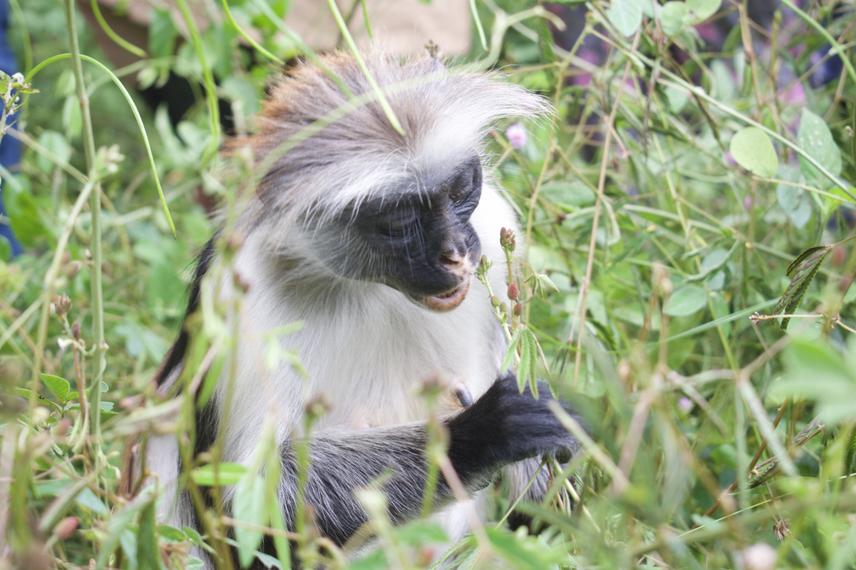Filemon Elisante Mbwambo
Other projects
25 May 2022
Promoting the Conservation of Zanzibar Red Colobus Monkey (Piliocolobus kirkii) through Conservation Education and Public Awareness in Vundwe Island in Zanzibar
2 Nov 2023
Protecting the Endangered Zanzibar Red Colobus Monkey through Habitat Restoration and Conservation Education in Vundwe and Uzi Islands, Zanzibar
The project will be implemented in Uzi island which is located in the southwestern coast of Unguja, Zanzibar, Tanzania – East Africa. The island harbours the species of red colobus monkey (Piliocolobus kirkii) which is endemic to Zanzibar archipelago. It is a flagship species playing an important role as one of the major attractions for tourists in the island. Unfortunately, the monkey is classified as an endangered species by the IUCN and the population continues to decline mainly due to habitat loss caused by agricultural activities, extraction of building poles, commercial firewood collection, wildfires and charcoal making.

Zanzibar red colobus monkey. © Suleiman Ally
In order to protect this species and its potential habitat, threatening activities taking place in the project area should be controlled. Previous reports have shown that the community members conduct illegal activities because they don’t have alternative sources of income to sustain their lives. Although the main economic activities in the area is fishing, they lack modern and effective fishing gear and vessels that could maximize their catch. Because of that sometimes they are forced to clear natural forests illegally for charcoal making, logs and firewood to gain extra income for their households. However, supporting them with environmentally friendly income generating activities will help to complement what is being obtained from fishing.
The project therefore aims at supporting the local community through initiation of environmentally friendly income generating activities including beekeeping and tree nurseries, to reduce reliance on forest resources. These projects may be used to substitute charcoal making, illegal logging, commercial firewood collection, etc which degrade natural forests. Through groups, members of local communities will earn revenue from selling honey products as well as tree seedlings, particularly indigenous, fast-growing, fruit, and shade tree species. Fast-growing species will be purposely included to ensure that villagers will have supply of firewood in the near future from their own farmlands. Moreover, the project will train and facilitate construction of improved local cooking stoves that uses less firewood and other non-wood materials including maize cobs and coconut husks. Together with the use of alternative cooking materials we anticipate that the community members will reduce reliance on natural forests as source of cooking energy. In the long run, the surrounding forests which are potential habitats for the monkeys and other unique fauna in this island will be conserved.
Header image: Zanzibar red colobus monkey. © Suleiman Ally.